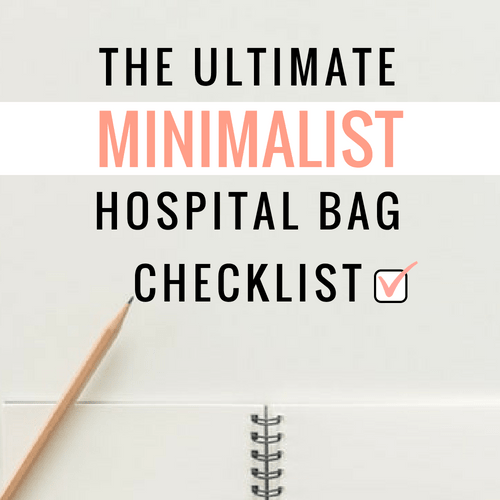Not every pregnancy is planned. And not every pregnancy begins with excitement. If you are pregnant and completely caught off guard, this post is for you.
My first experience serving pregnant women was while I was in college. I signed up for a volunteer doula training program that served teenage moms. For many of the young ladies, their pregnancies weren’t planned. In fact, many of the them still lived with their moms and were coming to grips with what it would mean to become moms themselves.
While unplanned pregnancy isn’t unique to any age-group, this group of strong and resilient women taught me a few important life lessons that prepared me for future conversations with women and friends, who also experienced unplanned pregnancies.
I learned several things:
- An unplanned pregnancy doesn’t have to mean it’s an unwanted pregnancy.
- An unwanted pregnancy can begin with regret at conception but transition to excitement through pregnancy and birth.
- Great moms and amazing children can come from unplanned pregnancies.
Related:
- 23 Important Things to Do After a Positive Pregnancy Test
- 7 Things Every Newly Pregnant Woman Should Know
- Baby Checklist: Necessities for a Newborn + Free Printable
HOW TO DEAL WITH AN UNPLANNED PREGNANCY
1. ALLOW YOURSELF SPACE TO FEEL
Intense emotional thoughts are often accompanied by intense emotional reactions. You may find yourself crying and that is OK.
Your tears may be joyful, sorrowful, or filled with feelings of regret and doubt. But… they are yours. Allow yourself to experience your emotions in ways that aren’t harmful. Tears may be the release you need.
2. ACKNOWLEDGE YOUR FEELINGS
A journal is a great place to begin sorting out your feelings about an unplanned pregnancy. It’s the one place you can feel completely unjudged about your feelings.
Whether you are excited, shocked, or disappointed. You have a right to those feelings. It doesn’t matter if it’s baby number one or baby number four. Write down how you feel in a safe place until you feel comfortable sharing your feelings with a trusted significant other or friend.
3. EXAMINE YOUR FEELINGS
This is another place a journal can be useful. If you feel regret, consider all the reasons why. If you feel fear, what are circumstances that are causing the fear?
Write down your feeling in one column and the reason you feel the way you do in a second column.
You can try this for every feeling you are experiencing. It can help you visualize what it is that is making you have the emotions you feel.
What you may notice is that many of the things you’ve written in the second column are things that can change. And if they can change, they can change for the better!
4. THINK OF THE BEST CASE SCENARIO
We’ve all heard it over and over, mindset is everything. The thing is, if you think the worst, it is difficult to not see the worst in all that you do. So, a shift in perspective can serve you well.
- You may be a student thinking that you couldn’t possibly finish school with a baby. BUT, what if you could take classes online?
- You may be a mom of two thinking that you couldn’t possibly have another baby just when life is beginning to normalize again. BUT, what are some ways that a new child can enhance your home life and family?
- You may be a woman unsure of how an unplanned pregnancy can be a positive thing but life is full of unexpected goodness. WHY can’t this be one of those occasions?
Sometimes, unplanned pregnancies become joyful reminders that plans aren’t always necessary for good things to happen.
5. IGNORE NEGATIVITY
Sometimes, how we feel about unplanned pregnancy is largely because of the negative response we expect to receive from peers and perhaps even family.
There will always be people on the outside looking in with judgment and disapproval. Even those who mean well will say things that are hurtful or unnecessary.
- “Why weren’t you on birth control?”
- “Do you plan to keep having children in your situation?”
- “You think he’d be a good father?”
There is enough you have to deal with internally. Yet, you may be faced with outside negativity you’ll have to ignore.
Find ways to build yourself a life-bubble filled with love and light. Be cautious who you invite into that bubble.
6. FIND A SUPPORT SYSTEM
Becoming a mom for the first time or the fifth time is a process that demands a strong support system. Family, friends and co-workers can be amazing as we transition through new stages in life and motherhood.
If your support system isn’t in your physical location, consider mom groups and meetings.
Also find out if hiring a doula is a service you believe would be beneficial to you. Doulas offer emotional and educational support to expecting moms. This is especially beneficial during the postpartum period.
7. HAVE FAITH
Have faith in yourself. Have faith in what you believe. Have faith that you will move towards alignment and peace with your situation.
- If you believe children are gifts. Think of your child as gift.
- If you believe God has a purpose for your life. Think of the purpose God has for the child in your womb.
Every experience is preparing you for what’s next in your life. Your story of unplanned pregnancy may one day serve to heal another woman with the same circumstance.
In closing, I just want to share that I had a friend call me in tears about an unplanned pregnancy. She was working a mediocre job with plans on attending graduate school. She didn’t have the home, the income, or the support she thought she needed to raise a child.
This is what happened, after the shock and the tears:
- She had her son.
- She didn’t give up on her dreams. She finished graduate school.
- She earned a well-paying job.
- She became an amazing mom (even without the full support of the father of her child).
I admire my friend but this isn’t just her story. So many women have a similar story because moms are resilient. You are resilient!
The child you don’t plan, may be the child you can’t imagine your life without in just a few months.
Sending you love and light on your journey!!
Be sure to grab your free copy of the pregnancy checklist, a list of things you can begin doing to support your pregnancy.






